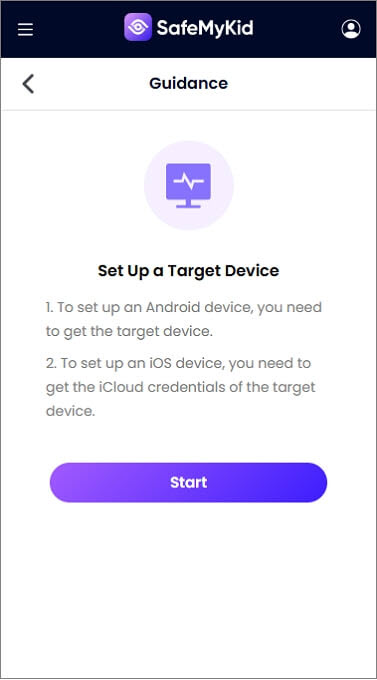Is Texting Cheating? 7 Signs of Emotional Overstepping

In today's digital world, relationships are no longer just about in-person interactions. Texting has become a major part of how people connect—but it has also raised an important question: is texting cheating?

If you’re wondering whether certain messages are harmless or if you’re crossing the line. There are definite warning signs that you might be engaging in emotional infidelity. Let’s break it down.
What Counts as Cheating Through Texting?
Texting itself isn’t bad, but when the nature of the conversation turns secretive, flirtatious, or overly intimate, it can be considered a form of cheating—especially if your partner wouldn’t approve of it.
Unlike physical cheating, emotional cheating through texts can be harder to define, but it can be just as damaging.
Here’s a quick comparison of innocent vs. questionable texting behaviors:
| Texting Behavior | Innocent | Questionable | Cheating |
|---|---|---|---|
| Messaging a coworker about work | Yes | No | No |
| Sending good morning/goodnight texts to someone else | No | Maybe | No |
| Keeping messages secret from your partner | No | Maybe | Yes |
| Deleting texts before your partner sees them | No | Maybe | Yes |
| Talking about personal/emotional struggles with someone else | No | Maybe | No |
| Sexting or exchanging explicit photos | No | No | Yes |
| Flirting and complimenting someone excessively | No | Maybe | Yes |
So, where do you draw the line? If you feel the need to hide messages, delete texts, or downplay a relationship, it’s a red flag.7 Ways Texting Can Lead to Emotional Cheating

Think your messages are just friendly? Here are seven warning signs that your texting habits might be considered emotional infidelity:
1. You Hide Your Conversations from Your Partner
Would you feel comfortable if your partner read your texts? If the answer is no, you might already know you’re doing something wrong. Secrecy and dishonesty are key indicators of emotional cheating.
2. You Delete Messages or Use Secret Apps
If you find yourself erasing conversations or using private messaging apps like Telegram or Snapchat to prevent your partner from seeing your texts, that’s a major red flag. Deleting texts means you know there’s something you don’t want your partner to find out.
3. You Talk More to Them Than Your Own Partner
Are you texting someone else more than you talk to your significant other? If you find yourself constantly excited to see a new message from them but feel disconnected from your partner, you may be forming an emotional attachment that can be just as damaging as physical cheating.
4. You Flirt and Cross Boundaries
Flirty compliments, teasing, or talking about topics that you know your partner wouldn’t approve of is a sign of crossing emotional boundaries. It may start as innocent fun, but it can quickly develop into something deeper.
5. You Confide in Them Instead of Your Partner
Are you sharing personal struggles, dreams, or emotions with this person that you don’t even tell your partner? Emotional intimacy is a bond that should be strongest in your relationship. If you’re getting that connection elsewhere, your relationship could be at risk.
6. You Keep the Nature of the Relationship a Secret
When your partner asks about your conversations, do you downplay the details or say, “We’re just friends,” even though you know it’s more than that? Hiding the truth about the nature of your relationship is a key sign that you’re emotionally cheating.
7. You Feel Guilty but Can’t Stop
One of the biggest signs? Guilt. If you feel a pang of guilt every time you text this person, or if you worry about your partner finding out, it’s a clear indication that you know you’re doing something inappropriate.
How to Set Healthy Boundaries with Texting in a Relationship

If you recognize these signs, you might be wondering, “What now?” Here’s how you can fix things before they escalate:
1. Be Honest with Yourself
Ask yourself: Would it be okay if my partner was texting someone else the same way? If the answer is no, it’s time to reevaluate your behavior.
2. Set Boundaries with the Other Person
If you’ve developed an emotional connection with someone outside your relationship, set firm boundaries to prevent further damage. Reduce unnecessary communication and keep conversations appropriate and respectful.
3. Talk to Your Partner
Honest communication is the key to any healthy relationship. If you feel the urge to text someone else emotionally, ask yourself what’s missing in your current relationship. Then, talk to your partner about how you both can work on it together.
4. Monitor Your Own Digital Behavior
Do you constantly find yourself deleting messages or switching to private chats? If so, it may be time to step back and rethink your priorities. Technology can be tricky, but transparency is essential.
How SafeMyKid Helps You Monitor Texting Cheating

If you’re worried that emotional cheating might be happening in your relationship—or if you simply want to ensure digital transparency in your family—SafeMyKid is the ultimate solution.
While originally designed for parental control, its powerful features also make it an effective tool for monitoring text-based infidelity in relationships.
Let’s be honest: Texting cheating can be hard to detect. Unlike physical infidelity, there’s no lipstick on a collar or unexplained absences—just a phone screen filled with messages that can be easily hidden or deleted.
That’s where SafeMyKid comes in, helping you see the truth before emotional cheating goes too far.
Key Features of SafeMyKid for Monitoring Text
- Text Message Monitoring – See all sent, received, and deleted texts.
- Social Media Chat Tracking – Monitor WhatsApp, Instagram, Snapchat, and more.
- Keylogger – Capture every typed word, even deleted messages.
- Call Tracking – View call logs, durations, and frequent contacts.
- Browser History Tracker – Detect secret chat apps and web-based messaging.
- GPS Location Tracking – Track real-time locations and set geofencing alerts.
- Hidden Mode – Runs discreetly without detection.
- Alerts & Notifications – Get instant alerts for suspicious words or activity.
How to Set Up SafeMyKid to Monitor Texting Cheating
If you want to keep an eye on digital behavior, setting up SafeMyKid is quick and simple:
Step 1. Sign Up & Create an Account
Visit the SafeMyKid website and sign up using your email address. Choose a plan that fits your needs.

Step 2. Install SafeMyKid on the Target Device
- For iPhones: No installation is needed! Just log in using iCloud credentials.
- For Android: Download and install the SafeMyKid app on the target phone.

Step 1. Start Monitoring Texting Cheating
Log in to the SafeMyKid dashboard from any device. View sent, received, and deleted messages across SMS and popular chat apps.

Emotional Cheating vs. Physical Cheating: Which Hurts More?
Cheating isn’t always physical. Emotional cheating—when someone forms a deep, intimate connection with another person—can be just as painful, if not worse.
While physical cheating is a clear betrayal, emotional infidelity often feels more personal because it involves deep conversations, emotional support, and secret attachments.
Many people say emotional cheating hurts more because it indicates a real connection, not just a moment of weakness. When a partner shares their dreams, struggles, and affection with someone else, it can leave their significant other feeling abandoned and insecure.
Unlike physical affairs, which may be short-lived, emotional infidelity often builds over time, making it harder to break.
So, which one hurts more? It depends on the relationship and individual feelings. But one thing is clear—any form of betrayal damages trust. The best way to protect your relationship is through honesty, clear boundaries, and open communication.
How to Rebuild Trust After Texting Cheating
If texting has crossed the line into emotional infidelity, rebuilding trust is crucial. Here’s how you and your partner can move forward:
- Acknowledge the Issue
Ignoring or downplaying emotional cheating only makes things worse. If trust has been broken, it’s essential to admit the mistake and take responsibility for any hurt caused. - Have an Open and Honest Conversation
Sit down with your partner and discuss what led to the emotional connection outside your relationship. Was there a lack of communication, emotional distance, or unmet needs? Understanding the root cause helps prevent it from happening again. - Set Clear Boundaries
Decide together what is and isn’t acceptable when it comes to texting and online communication. Transparency—like not deleting messages or keeping conversations appropriate—can help rebuild trust. - Commit to Transparency
If trust has been damaged, temporary measures like sharing phone access or being more open about digital interactions may help. While privacy is important, honesty should always come first in a committed relationship. - Work on Strengthening Your Relationship
Cheating—whether emotional or physical—often stems from deeper issues. Strengthening emotional intimacy, spending quality time together, and improving communication can help rebuild your connection. - Consider Professional Help
If the damage feels too deep to fix alone, couples therapy or relationship counseling can provide a safe space to address underlying issues and rebuild trust.
Rebuilding trust takes time, patience, and consistent effort. But with mutual commitment, it’s possible to move past texting cheating and create a stronger, healthier relationship.
FAQs About Texting Cheating
To wrap up this comprehensive guide, here are some of the most frequently asked questions about texting cheating. These questions aim to clear up any doubts and help you make an informed decision about digital boundaries in relationships.
1. Is texting cheating even if there’s no physical contact?
Yes. Texting cheating involves emotional intimacy, secret conversations, and deceptive behavior. If messages are flirtatious, romantic, or hidden from a partner, it’s considered a breach of trust.
2. What are the signs of texting cheating?
Common signs include hiding their phone, changing passwords, deleting messages, excessive texting at odd hours, and getting defensive when asked about messages.
3. Can SafeMyKid help catch texting cheating?
Yes. SafeMyKid monitors text messages, tracks social media chats, captures keystrokes, and alerts you to suspicious conversations, helping you uncover hidden interactions.
4. Is it legal to track someone’s messages with SafeMyKid?
It depends on your jurisdiction. SafeMyKid is designed for parental monitoring, but using it to track a partner’s texts without consent may have legal consequences. Always check local laws.
5. How can I confront my partner if I suspect texting cheating?
Gather evidence, stay calm, and ask direct but non-accusatory questions. Communication is key—understand their perspective before making assumptions.
Final Thoughts
So, is texting cheating? The answer depends on intent, secrecy, and emotional connection. If you’re hiding texts or forming deep emotional bonds with someone else, you might already be crossing the line.
The best way to prevent emotional cheating is through clear boundaries, open communication, and honesty in your relationship. And if digital behavior is becoming an issue, tools like SafeMyKid can help maintain trust and transparency.


